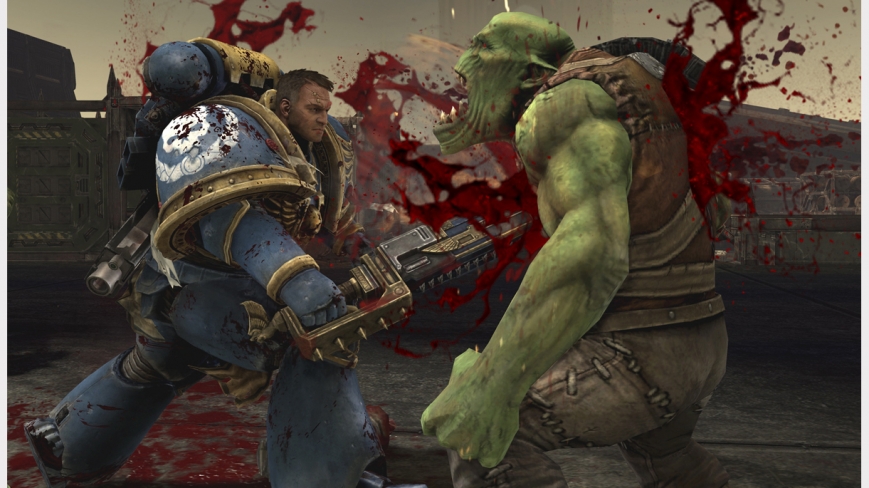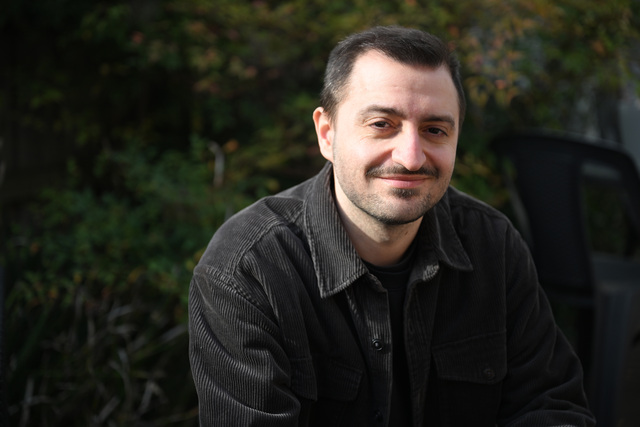From high-tech video consoles to traditional board games and role-playing, gaming has never been more popular, or organised.
ERIC Papaluca’s earliest memories of video games involve waking on Christmas Day to unwrap an original PlayStation console. His mother had slipped in the now-retro icons Need for Speed and Crash Bandicoot. He was four years old.
‘‘Ever since then I’ve just been addicted to video games,’’ the 17-year-old says in his dimly lit bedroom in Maidstone.
Eric spends about 30 hours a week playing video games and these days his game of choice is Team Fortress 2, a team-based first-person shooter game in which two teams with access to nine characters battle each other in military style settings.
Eric plays in an online league as part of a team of six people from various states across Australia. The team needed a replacement and he was approached to play, but still had to prove his worth in a trial to make the cut.
‘‘We’re undefeated at the moment,’’ Eric says proudly. ‘‘For the last four months we haven’t lost a match.
‘‘I’m a big competitive gamer. Ever since I was little you just build up a natural skill to it and just playing with my friends around here, they always lose. By going out online I’m playing against other teams of like-minded players. You get that competitive feel. It’s good to be in a team that are like you, playing against people that are like you.’’
Eric is not alone – the gaming culture in Australia is booming. The phenomenon began in the early ’70s when Pong, the first commercially successful video game, was released worldwide.The addictive simulated table tennis game was launched in 1972 at arcades and pubs and soon made its way into millions of homes via the Atari system.
Jonathan Strugnell, a lecturer in animation
for film and games at the Academy of Interactive Entertainment (AIE) in Melbourne’s CBD, remembers the game fondly. ‘‘When I was a kid, computer games of course were just barely arriving, so I’ve played most of them,’’ says the 45-year-old Yarraville resident. ‘‘I remember Pong.
I remember Space Invaders.’’
Strugnell says gaming has always been a big part of his life. ‘‘But some of my gaming is not based on computers. It’s the old-fashioned old-school pen and paper style. Computers were just an extension of my dictum.’’
Strugnell believes games have grown into a popular pastime because they offer something for everyone. ‘‘It’s genre-based,’’ he explains. ‘‘The first-person shooter are the people who want the adrenaline rush. The role-playing strategy are people who like planning and its simulation warfare, so being a general. The adventure-based games are people who like a story.
‘‘So games can be a safe way of experiencing thrills. Like going on a rollercoaster. You can go and shoot things and blow things up and you get the rush, but it’s also safe because you’re in front of a computer.’’
Strugnell is teaching the next generation of games makers and he describes Australia as experimental and adventurous in creation.
Australia, he says, doesn’t create the A level games that America does and instead has found a niche in innovation. For the most part, he teaches students how to make computer games and films digitally, similar to Shrek and Avatar. AIE offers a two-year course specialising in practicality in an attempt to simulate a real-life studio.
So can games get the better of some? ‘‘That is definitely a danger,’’ Strugnell concedes. ‘‘They are psychologically addictive to certain personalities.
‘‘It’s something we encounter. We notice some students don’t do so well because they have literally become addicted to a game. I’ve had that a few times over the years.’’
Strugnell says a passion for games usually starts in childhood. For some it fizzles out, and for others it becomes a lifelong thing. ‘‘Some people, they grow out of it. It’s just a childhood thing and when they stop playing other sorts of games they stop playing computer games … other things take over. The sort of people who continue are usually people who like the adrenaline rush, can’t go skiing, and want some of the same buzz.’’
East Keilor resident Scott Pearce, 42, is part of the generation that never grew up. In his 20s, Pearce started playing Warhammer Fantasy, a tabletop war game with mass scale armies of soldiers, dragons and mythical creatures. A significant part of the game involves assembling the kits and painting models. For some it outweighs the actual playing. Pearce has collected nearly every army that the manufacturer has made.
‘‘I love the building and the creativity,’’ he says. ‘‘The gaming is fun. I used to play a lot more than I do now. But I like the ability to create my own versions of what it is.’’
On a typical Wednesday, Pearce, a chef, can be found at the Games Workshop store in Ascot Vale, where almost a dozen people of various ages come to hang out. He spends hours on end, up to eight in a sitting, immersed in his hobby. ‘‘I use the shop as my games base. It’s my escape,’’ he says. ‘‘I used to do parachuting and motorbike riding. It’s one of those things I can do rain, hail, or shine, and it’s very social.’’
Do people find his obsession weird? ‘‘Hell yeah. It’s one of those things where people have a preconceived idea. Sometimes they change their mind once they’ve seen it. Others still see it as playing with toys.’’
Sitting alongside Pearce is 16-year-old schoolkid Tyler Watson, who is relatively new to the hobby. Watson says he prefers Warhammer to console games because you can meet people and make friends. He prefers the preparation and the painting to the actual game.
‘‘The painting takes quite a while. You put your heart and soul into it. You’re proud of what the model looks like.’’
Watson can already see his hobby turning into a lifelong obsession. ‘‘One day I was just walking down the street and saw the shop and came in, did a test model, and sort of fell in love with it. That was it for me. Hooked ever since.’’
Williamstown resident Stuart Lamble also looked to games when seeking a social outlet. Two years ago he was living in Auckland and trying to meet people.
‘‘I needed something to get out and meet people and this was the most expedient option.’’
When he moved back to Melbourne he joined Cafe Games, a board games club based in Melbourne. About 70 people meet regularly in the CBD to catch up and play games.
The 37-year-old’s favourite is Ticket to Ride: Europe, a railway-themed board game. ‘‘I don’t mind playing a game and losing as long as everyone’s played well,’’ he says.
‘‘I work in IT in a small company and see the same five to six people every day. It’s nice to get out and meet people.’’
Strugnell says people play games for a variety of reasons including boredom and interacting with others. He plays both PC and console games regularly, and even dressed as game character Solid Snake from Metal Gear in a Guinness World Records attempt by AIE this year to have the most number of game characters in a single room.
‘‘If you’re playing a computer game, you’re part of a story. And with quite a lot of games you can direct the story yourself. Essentially, it’s being in a movie.’’
Perhaps the strongest pointer to Australia’s fascination with games was last year’s announcement that the Penny Arcade Expo will be held at the Melbourne Showgrounds this July. Usually held in Seattle and Boston, it celebrates console gamers, computer gamers and tabletop gamers.
It will be the first time the expo will be held outside the US.
The three-day festival includes concerts inspired by game culture, panels on game topics, and tournaments.
Eric Papaluca bought a three-day pass and will take along his PC, paying extra for security staff to watch over it.
One of the more interesting aspects of the festival is Omegathon, a tournament consisting of a group of randomly selected fans competing for a grand prize. Papaluca hopes to be one of the lucky dozen selected.
Asked how long he believes his games fascination will last, he seems fixed on it clicking over.
‘‘Forever, because it’s what I’m best at. It’s like my skill and my hobby.’’







